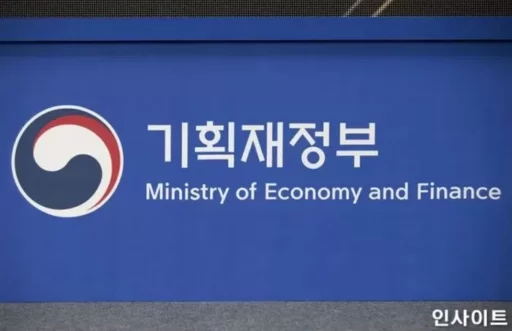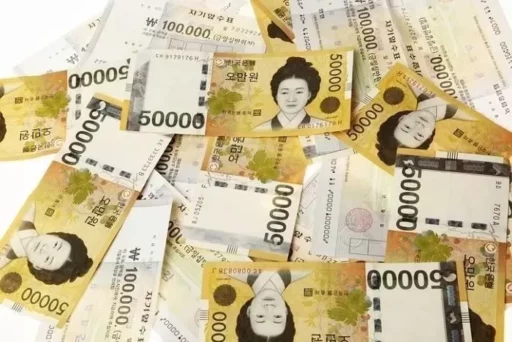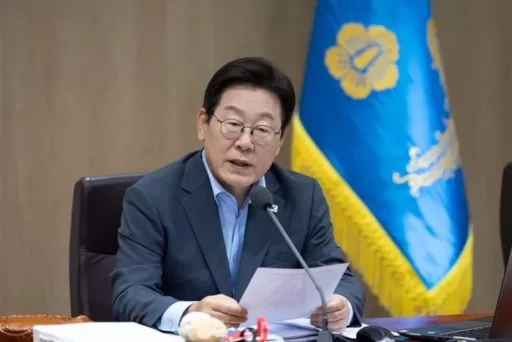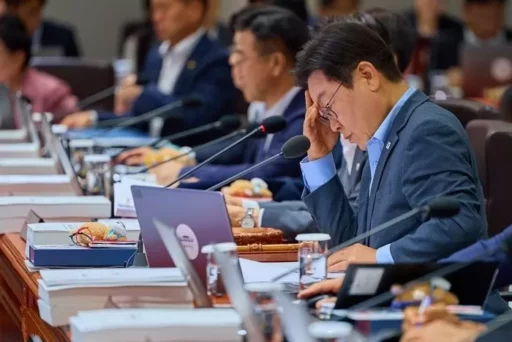South Korea's Financial Warning Sign: 94 Trillion Won Deficit Recorded in the First Half of the Year
The financial situation in South Korea for the first half of this year is not looking good.
According to the "Monthly Financial Trends August" report released by the Ministry of Economy and Finance on the 14th, the country's fiscal deficit for the first half of 2024 (January to June) exceeded 94 trillion won, marking the fourth-largest deficit in history. This indicates a warning sign for national fiscal health.

Total revenue for the first half of the year was 320.6 trillion won, an increase of 24.7 trillion won compared to the same period last year.
National tax revenue reached 190 trillion won, which is an increase of 21.5 trillion won. In particular, corporate tax revenue saw an increase of 14.4 trillion won due to improved corporate performance and an increase in corporate interest and dividend income, while income tax also grew by 7.1 trillion won.
The major causes of this increase are attributed to the rise in capital gains tax from the stock boom and an increase in earned income tax due to bigger bonuses and a growing workforce.
Deepening Fiscal Deficit Due to Increased Expenditures
On the other hand, total expenditures rose to 389.2 trillion won, an increase of 17.3 trillion won compared to the previous year. As a result, the consolidated fiscal balance, which is total revenue minus total expenditures, recorded a deficit of 68.6 trillion won.

What is even more concerning is that the managed fiscal balance, which deducts the four major social assurance funds, was estimated to have a deficit of 94.3 trillion won.
While this represents an improvement of 9.1 trillion won compared to the same period last year, it is still the fourth-largest deficit in history, following figures from 2020 (110.5 trillion won), 2024 (103.4 trillion won), and 2022 (101.9 trillion won).
As of the end of June, the central government's outstanding debt balance was 1,218.4 trillion won, an increase of 600 billion won compared to the previous month.
Status of National Treasury Bonds and Interest Rates
The issuance of national treasury bonds in July reached 21.2 trillion won.
From January to July, a total of 145.5 trillion won was issued, which accounts for 63.1% of the annual issuance limit.

In the same month, the interest rates on national treasury bonds (3-year: 2.460%, 10-year: 2.785%) experienced some upward pressure due to rising global interest rates, particularly in the US; however, overall, the market maintained a stable trend because of the influx of bargain-buying.
Tasks for Restoring Fiscal Health
In a situation where the fiscal deficit continues to grow, it appears urgent to devise measures to restore fiscal health.
Particularly, if the second supplementary budget is reflected, it is forecasted that national debt could surpass 1,300 trillion won by the end of this year, raising concerns among experts.
Fiscal experts emphasize the need for comprehensive measures to restore fiscal health, such as expanding the revenue base while reducing unnecessary fiscal expenditures. They also stress the importance of managing national debt at an appropriate level through medium- to long-term fiscal management plans.

Meanwhile, on the previous day, President Lee Jae-myung candidly discussed the fiscal difficulties facing the current government.
On the 13th, President Lee held a meeting on government fiscal savings at the Presidential Office in Yongsan, stating, "While managing the nation's finances, there are many essential tasks to be done, yet we are troubled by a lack of funds. Despite the need for fiscal resources to stimulate growth, tax revenues are declining."
He diagnosed that "the slowing economic growth has weakened national finances due to reduced revenues."
On that day, President Lee likened the current fiscal situation to farming, saying, "Trying to borrow seeds from next door, people argue why I should borrow. They say we should live with what we have. If I can borrow a bowl of seeds to sow and harvest a sack in the fall, shouldn't I do that?"
He emphasized, "If we say never to borrow and just live with what we have, we won't be able to farm," indirectly rebutting criticisms concerning the current fiscal situation.
Image Sources: Photo = Insight, unrelated material photo / gettyimagesbank, President Lee Jae-myung / News1, on the 12th, President Lee Jae-myung chaired a cabinet meeting at the Presidential Office in Yongsan, Seoul / News1.


